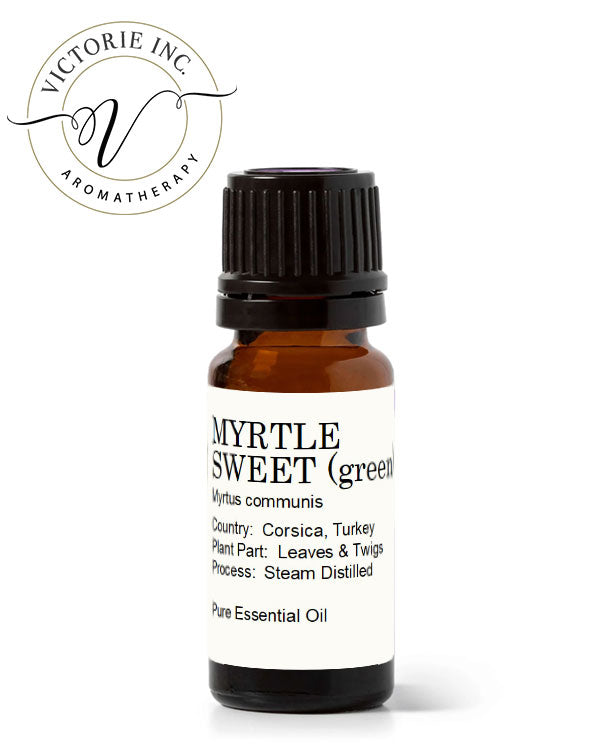
Myrtle Sweet Essential Oil
Myrtle, Sweet Linalool CT
Scientific Name: Myrtus communis
Country of Origin: Corsica, Turkey
Distillation Method: Steam Distilled
Plant Part: Leaf
Perfume Note: Middle to Top
Since antiquity the leaves have been used for perfumes and food. Myrtle was a symbol of love because it was used in bridal bouquets or headdresses. The modern Jews still adorn the booths and sheds at the feast of tabernacles with myrtle. The flowers emit a perfume more exquisite than that of the rose, however, there is not an essential oil produced from the flowers. Myrtle essential oil is obtained from the leaves and twigs.
There are many types of Myrtle essential oil available with different scent profiles. Our Sweet Myrtle has a "Linalool" has a chemotype.
Fresh, sweeter and softer camphorous, herbaceous scent than Red Myrtle.
Blending Suggestions: bay, benzoin, bergamot, black pepper, cedarwood, clary sage, clove, elemi, eucalyptus, frankincense, ginger, hyssop, laurel, lavender, lemongrass, lime, myrrh, neroli, pepper, rosemary, rose, rosewood.
Suggested Oil Uses & Properties for External Applications:
Anointing Oil, Meditation, Room Fragrance, Diffuser
Uplifting, Balancing, Cleansing
Antispasmodic, Antimicrobial, Expectorant
Safety:
Hazards: Drug interaction; potentially carcinogenic, based on estragole and methyleugenol content.
Maximum dermal use level: EU 0.02% IFRA 0.04% Tisserand & Young 1.9%
Tisserand, Robert; Young, Rodney. Essential Oil Safety: A Guide for Health Care Professionals (pp. 1450-1451). Elsevier Health Sciences. Kindle Edition.
Storage: Store in a dark colored bottle out of direct sunlight.
Scripture References
Nehemiah 8:15, Isaiah 41:19, Isaiah 55:13, Zechariah 1:8, Zechariah 1:10, Zechariah 1:11.
This information has not been evaluated by the Food and Drug Administration. This product is not intended to diagnose, treat, cure, or prevent any disease. For educational purposes only.


